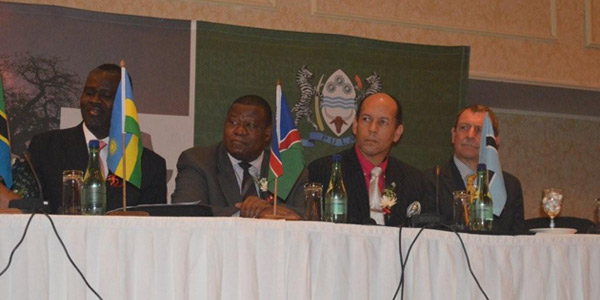
This month, several countries in Africa took a step forward in the way they understand, manage and value natural capital. They agreed to formalize the path forward in making the Gaborone Declaration work on the ground in each of the 10 signatory countries.
 “We can no longer agree to the use of GDP as a measure of social performance alone in the face of environmental degradation…national budgeting systems have to change to reflect either the environmental damage or its deterioration.”
“We can no longer agree to the use of GDP as a measure of social performance alone in the face of environmental degradation…national budgeting systems have to change to reflect either the environmental damage or its deterioration.”
Hon. Tshekedi Khama, Minister of Environment, Wildlife and Tourism, Botswana
Pointing to the need for Africa to catch up with this thinking and improve environmental accountability, Khama added: “We can no longer agree to the use of GDP as a measure of social performance alone in the face of environmental degradation…national budgeting systems have to change to reflect either the environmental damage or its deterioration.”
- WAVES work in Madagascar and Botswana: Both countries have begun implementing NCA as core implementing countries in the WAVES global partnership. Madagascar is constructing accounts on mining, water resources, protected areas/forests, coastal ecosystems and macroeconomic indicators. Botswana has finished preliminary work on water accounts and the results were presented at the meeting.
- Partnership on mining in Liberia: The government of Liberia, Conservation International and ArcelorMittal Liberia are collaborating with local stakeholders in Northern Nimba country to develop a coordinated landscape plan that will include conservation, agriculture, mining and development.
- Corporate action by Consumer Goods Council in South Africa (CGSA): This is an initiative born from the Gaborone Summit in 2012 where the chairman of the body participated at the Summit. CGSA is adopting models for private sector leadership for environment sustainability and climate change resilience through the largest industry membership body in South Africa.
The communiqué urged all stakeholders that are deliberating on the post-2015 development agenda to consider the inclusion of the value of natural capital in the agenda and the formation of the Sustainable Development Goals (SDGs).
The secretariat will also solicit more partners and countries in Africa to sign the declaration and create a movement on natural capital being at the heart of all development decisions.
